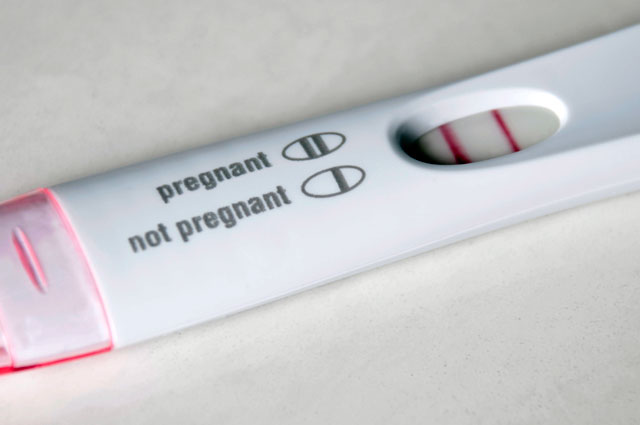How do I know whether I am Pregnant or not?
Your period is overdue….you are feeling uneasy, your breasts are tender and you feel as if your period is coming…. But wait a minute, there is something unusual about this: you feel tired, you feel like eating, you need to go to the bathroom more often, and feelings of nausea suddenly crept up…..Hmmm…Am I pregnant?
(1) The Home Pregnancy Test

A urinary home pregnancy test can be used to detect pregnancy. It is available in most of the pharmacies, and it is easy to use. All you need to do is to produce some urine and run the test yourself in the comfort of your own bathroom. The test detects human chorionic gonadotrophin (hCG), which is a hormone produced by your placenta. This hormone can be detected in your blood stream and urine as soon as the embryo implants in your womb between 8-12 days after fertilization. Sometimes it even appears before your first missed period. Although this test is sensitive, the sensitivity is very much relies on the timing of the testing. Generally, the test is 90% sensitive when you test on the day when you missed your period. The sensitivity improves to about 97% if you wait one week after your expected period. Therefore, if your initial test is negative and you still experience the symptoms of pregnancy, repeat the test again in a few days. Your initial test may have been performed too early.
(2) Ultrasound Scan
Once the pregnancy test is positive, you should see your doctor and have an ultrasound scan to confirm the pregnancy. This is important to confirm the duration of the pregnancy and accurately date your pregnancy. It is also important to exclude pregnancy outside the womb (ectopic pregnancy). You can expect to see the baby’s heart beat by 5-6 weeks of pregnancy. In cases whereby there is more than one baby, early scan can detect the chorionicity of the babies and serves as an important information for the obstetrician managing your pregnancy.
(3) Blood test for Human Chorionic Gonadotrophin (hCG)
Sometimes when the urine test is positive but the ultrasound scan shows an empty womb (no pregnancy), your doctor may take some blood to estimate the hCG level. This is useful to differentiate between early pregnancy and pregnancy outside the womb (ectopic pregnancy). Sometimes your doctor may need to repeat the hCG level in 48 hours to determine whether the pregnancy is progressing normally. In about 85% of normal pregnancies, the hCG level will double every 48-74 hours.
A transvaginal ultrasound scan should be able to show at least a gestational sac once the hCG level reaches between 1,000 to 2,000 mIU/ml. However, a single hCG reading is not enough to make a diagnosis. Multiple testings of hCG may be necessary to make more accurate assessment of your pregnancy.